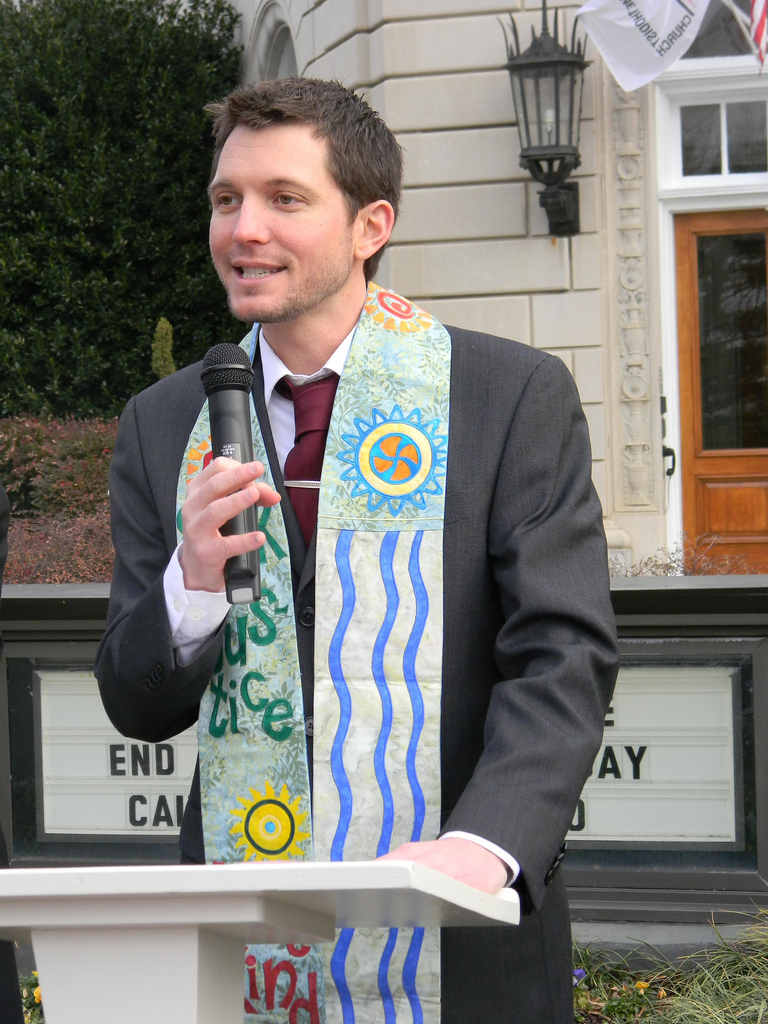Commentary: A Congressional Agenda and Increased Attacks on Immigrants
 The House of Representatives voted to punish cities with community policing efforts. H.R. 3009, the Enforce the Law for Sanctuary Cities Act in the U.S., passed last week with a divided vote – 235 Republicans to 174 Democrats. This vote exposes the House of Representatives’ willingness to exploit the tragedy in San Francisco for their own anti-immigrant agenda.
The House of Representatives voted to punish cities with community policing efforts. H.R. 3009, the Enforce the Law for Sanctuary Cities Act in the U.S., passed last week with a divided vote – 235 Republicans to 174 Democrats. This vote exposes the House of Representatives’ willingness to exploit the tragedy in San Francisco for their own anti-immigrant agenda.
Sanctuary policies mean local police shouldn’t enforce immigration and, according to the Constitution, immigration should only be enforced at the federal level. Sanctuary cities have their roots with faith communities who helped create the Sanctuary Movement of the 1980s, saving the lives of thousands of Central Americans who fled civil war, but were not recognized by the U.S. government as political refugees. Deportation for them meant being turned over to death squads after repatriation. A network of 500 churches grew into an underground railroad to create refuge for those fleeing war.
In the current era of mass deportation, 2 million people were deported over the last six years. This system depended on the “Secure Communities” program, wherein local police would detain people for Immigration Customs Enforcement (ICE). However, these ICE “hold” requests were found unconstitutional by a federal court in Oregon in 2014. Three hundred and twenty jurisdictions have passed TRUST policies to stop honoring ICE detainer requests. Law enforcement officials throughout the country agree that part of ensuring public safety for everyone means immigrants who are witnesses or victims of crimes should not be afraid to talk to local police.
So if TRUST policies support public safety and uphold the values of the Constitution, why would Congress support this anti-immigrant legislation? As we learn more about how mass incarceration works in the era of “colorblindness,” it is abundantly clear that the language of legality is being used as a new code of racial bias. Decision makers don’t use racial slurs like the 1954 “Operation Wetback” anymore; instead they say “illegal criminal aliens.” The social construction of “other” relies on a system that racially profiles, targets low-income populations, and then criminalizes people of color.
Some senators want to make all acts of re-entering the United States after deportation a mandatory minimum prison sentence of five years. Those who have been separated from their families by the unjust and immoral mass deportation system would be further punished if they chose to reunite with their family by crossing the border.
As mass incarceration grows in a country with more than 2 million people locked up, why are we talking about incarcerating more people? The private prison industrial complex depends on continual growth to expand their profit margins. In the last six years alone, companies like Geo Group and Corrections Corporation of America put $11 million into lobbying Congress. The more beds that are filled, the more money they make (see “Warehoused and Forgotten: Immigrants Trapped in the Shadow of Private Prison”).
As we learn more about the roots of the attacks on Sanctuary cities and their connections to mass incarceration, let us work together from the tradition of the Sanctuary movement to stop these harmful and discriminatory policies. Faith Leaders, please sign this letter to Congress to stop Congress’ attack on immigrants.
The Rev. Noel Anderson is the UCC’s National Grassroots Immigration Coordinator.
View this and other columns on the Witness for Justice webpage.
Donate to support Witness for Justice through the Neighbors in Need offering.
Click here to download the bulletin insert.
Related News
‘On My Mind Today’ shares thoughts and concerns from UCC’s Karen Georgia Thompson
In a rapidly changing and volatile world — where the latest news raises more questions...
Read MoreSelf-nominations requested for individuals to serve as General Synod committee chairs
As planning for General Synod is well underway, the General Synod staff are seeking...
Read MoreValentine’s Day was a great time to have a heart for the climate: UCC churches take action
The United Church of Christ Environmental Justice ministries recently invited congregations to...
Read More


